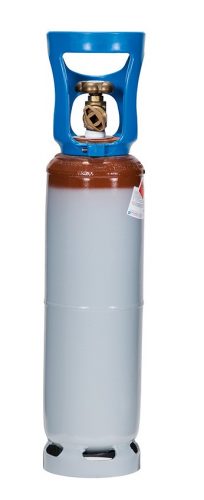Gas cylinders require special handling and storage. Acetylene in particular is a rather unstable gas, which is why some extra precautions should be taken. If you are working with an acetylene flashlight, here are some important safety rules.
Rules for transporting gas cylinders
The gas cylinder transport vehicle does not require specific standardized safety equipment. On the other hand, you must meet all the conditions to avoid risking an accident.
Fixing the cylinders
All cylinders must be securely fastened. They should not be able to move or clash while you are driving. The fasteners or systems for securing them must be able to withstand sudden braking or maneuvering, in the event of an emergency stop or sudden deviation from the vehicle’s path. In addition to the risks you take with loose bottles, you can be fined if you are caught.
Putting on the cap
All bottles must have their caps on. In addition, any connectors must be unscrewed.
Temperature and ventilation of the transport vehicle
The gas doesn’t tolerate extreme temperatures well. Some freeze quickly and all expand as the temperature rises. You should never leave your vehicle exposed to the cold of winter or the heat of summer.
On the other hand, ventilation is essential while you are riding to avoid overheating.
Characteristics of the acetylene cylinder
Due to the instability of acetylene, it is stored in a dissolved state under pressure in a solvent impregnating a porous material. The solvent used is acetone. It is inseparable from the acetylene cylinder from which it must not come out. This means never transferring gas from one cylinder to another. Also, the cylinder should never be lying down when transporting or storing it.
What to do if an acetylene cylinder has been lying down?
If an acetylene cylinder is inadvertently lying down, it must not be used immediately. It is imperative to straighten it and let it rest for at least 24 hours before opening its tap. If you do not take this precaution, you run the risk of the solvent escaping when you open the container.
After this resting period, always open the tap slowly to feed your acetylene oxygen blowtorch. This caution must be respected in all cases, even when the cylinder has been stored in good conditions.
What to do in case of shock if your gas cylinder falls?
Cylinders, regardless of the gas they contain, are designed to be shockproof if dropped. They undergo aptitude tests that verify their resistance in case of a fall from a height of 1.2 meters, on the head, their most vulnerable part.
If your acetylene cylinder falls over, straighten it gently. Check all the connector elements, as well as the accessories: valves, pressure gauges, regulators, etc. If you find that sensitive parts are damaged, contact the manufacturer for advice.
If the bottle appears to be intact, let it rest for at least 24 hours before using it.
What to do if an acetylene cylinder spills?
If your acetylene cylinder spills, your first step should be to clear the area. It must then be cooled with a large quantity of cold water and left to rest.
After at least 24 hours, slowly tilt the bottle upright.
